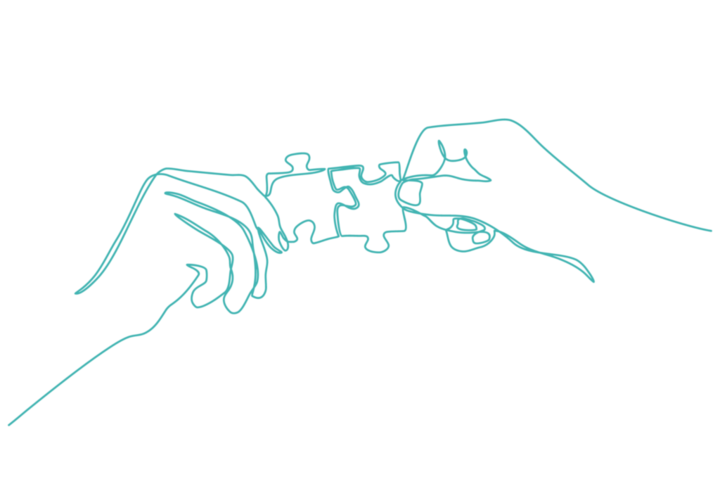
What is Psychiatric Reform in Greece?
The psychiatric reform in Greece started decades ago, with the aim to abolish non-conventional psychiatry and to integrate the mentally functional into society through Social - Community Psychiatry and Psychosocial Rehabilitation.
When did it happen?
Psychiatric reform in Greece began with the country's accession to the European Union (1981). In 1999, the national programme codenamed "Psychargo" was launched and in 2000 deinstitutionalisation began.
What is the Psychargos Programme?
It was developed in 1999 and aimed to continue the pace and momentum of reform with an emphasis on the development of community mental health services and social inclusion and reintegration, as well as the entry of people with mental health problems into the workspace.
What Mental Health Units are there in the Psychargos programme?
In the programme we find: boarding schools, hostels, sheltered apartments, day centres, mental health centres, psychiatric departments of general hospitals, mobile units and medical-educational centres in structures managed by NGOs, social cooperatives with limited responsibility (CSPs).
What are the criteria for integration in a Psychosocial Rehabilitation Unit (boarding house, hostel, sheltered accommodation)?
For the accommodation of a person in a P.R.U. the following are required:
- Psychiatric certificate from the attending physician signed by the Director or his/her legal substitute, in order to indicate the diagnostic category according to ICD-10 and the necessity to be placed in a protected environment.
- A certificate based on a social survey by the social worker of the units described above, regarding the socio-economic conditions, family environment, the existence or not of housing and the length of hospitalization.
- Hospitalisation of a patient in a Psychiatric Department of a General Hospital or a Psychiatric Hospital or a Private Psychiatric Clinic.
Is it necessary to have a previous hospitalization to join a M.P.S.A.?
For the accommodation of a patient in a M.P.S., the patient's current hospitalisation is not required. The patient's previous hospitalisation (regardless of the duration) in a Psychiatric Department of a General Hospital or in a Psychiatric Hospital or in a Private Psychiatric Clinic is sufficient as a prerequisite. On the other hand, in the case of autism, dementia - Alzheimer's disease and children and adolescents with mental health problems, no prior hospitalisation is required.
Who is responsible for the admission/transition of patients to P.R.U.
The process of transition of patients to P.R.U. is supervised and coordinated by the Health Regions (H.H.R.). For this purpose, the Governor appoints an official as a Vacancy Manager in each MHH.
How do I find out which Health Region I belong to?
Greece is divided into seven health regions. 1. Piraeus and Aegean Region, 3rd M.P.R. 1. Thessaly and Sterea Ellada, 6th M.O.P. Peloponnese, Ionian Islands, Epirus and Western Greece, 7th M.I.P. Crete. We can find the Hellenic Ministry of Health according to our permanent address.
Where can the person concerned go in order to be accommodated in a Housing Unit?
The person directly concerned or his/her supporting framework can contact a social service of the municipality or hospital where he/she is hospitalised or the Community Centre or the Region to which they belong, in order to be informed about the procedure and the necessary documents for admission to a Unit. Also, the social service of the hospital (in case of hospitalisation) will be able to facilitate the person concerned with the social research certificate, the application form and anything else that may be required.
Is there a trial period?
Individuals with P.R.U. have the option of adaptation during the trial period.
Length of stay?
The length of stay of residents in an P.R.U depends on the operating licence of the Unit.
What services are provided to the guests of P.R.U.?
The services are specified on a case-by-case basis according to the Internal Operating Regulations of each Unit. Indicatively, they may include:
- Living & psychosocial support
- Rapid voluntary hospitality
- Arrange for the administration & monitoring of medication;
- Development & implementation of a personalised care plan
- Training in individual & social skills
- Community lawsuit
- Linking with other mental health, health and welfare services
- Counselling & psychoeducation of the family
- Training of mental health professionals & other health professionals
- Training of volunteers
Is there an accommodation cost?
In the "Psychargos" housing units there is no cost from the guests to the unit.
How many people are accommodated in each Unit?
The number of people depends on the type of housing structure. More specifically, sheltered housing is comparatively the one with the smallest number of guests, followed by hostels and boarding houses. The accommodation places are defined by the establishment/operating licence of each establishment.
Is there an age limit for guests?
The Mental Health Units of the "Psychargos" programme cover a wide age range and provide services for children, adolescents and adults. A distinction is made accordingly.
What categories of mental health professionals can we meet?
The approach is multidimensional. The involvement of professionals from different disciplines is essential to provide differentiated services to meet the diverse and complex needs of a person with mental illness and their family. We meet psychologists, social workers, psychiatrists, nurses, occupational therapists, etc.
Where can I find more information about this?
Valid information can be found on the website of the Ministry of Health: Mental Health Psychiatric Reform Programme PSYCHARGOS
What are the "Thalpos" Units?
These are high protection Psychosocial Rehabilitation Units, which accommodate people with serious mental health problems on a 24-hour basis. The main emphasis is on hospitalisation, education, employment and personal psychosocial development of the residents. The units are part of the National Psychiatric Reform Programme 'Psychargos'.
What services are provided in the P.R.U. "Thalpos"?
People accommodated in the "Thalpos Attica" P.R.U. can ensure their medication, training in social and living skills, psychological support, individualized treatment program by the multidisciplinary team, observance of their rights, medical care, interface with the family/legal guardians.
What is the basic principle of operation of the "Thalpos" Psychosocial Rehabilitation Units and what is their purpose?
The basic principle of operation of the "Thalpos" Psychosocial Rehabilitation Units is the harmonization of daily life in the Unit with the rhythms of social reality. Their purpose is the deinstitutionalization of people with serious mental health problems.
How could I work in the Units?
The specialties that are mainly employed in the Psychosocial Rehabilitation Units "Thalpos" are the following: Psychiatrist, Psychologist, Pathologist, Social Worker, Occupational Therapist or Creative Activity Manager, Nurse and General Worker.
If you have educational training and professional experience in the field of mental health, you can send your CV to hr@thalpos.org.gr. Alternatively, you can keep an eye on available jobs posted on the website and on our official Facebook page.
How can I volunteer for people staying in the Units?
The Units may accept support on a voluntary basis from individuals or other collective bodies through a mutually agreed framework which is established on a case-by-case basis. The institution of volunteers can offer a variety of benefits: on the one hand, practical help is of great importance, on the other hand, it bridges the community's relationship with the residents and combats prejudice.
Learn more about what volunteering at Thalpos means!
Are the patients staying in the units dangerous?
The beneficiary residents of our Units suffer from mental illnesses and related disorders that allow them, with appropriate support in the context of psychosocial rehabilitation, to live and participate in the local community without any threat to the life or physical integrity of themselves, staff and citizens.
Shouldn't the Units be located somewhere more remote and quiet, and not in the city?
The reintegration of the mentally ill into the community is the foundation of the Psychiatric Reform and part of the national mental health policy of most countries in the civilised world. The aim of deinstitutionalisation is not only to enable these institutions to function as rehabilitation and social reintegration units for the mentally disadvantaged, but also to become agents of change and progress for the neighbourhood and community in which they operate. And, even more importantly, to create a climate in the local community that not only accepts difference, but lives and develops with it equally and harmoniously.
How are the Thalpos Units funded?
The Psychargos Programme is continuously supported by European and national funding mechanisms. Since 2005, the main source of funding was the Greek Community Support Framework "Operational Programme Health-Welfare 2000-2006", while from 2008 to 2013 the National State Budget took over the funding of the programme. In 2013, the NSRF under the "Operational Programme for Human Resources Development 2007-2013" supported the programme until 2015, while from 2016 to date, funding has been transferred again to the National State Budget.








